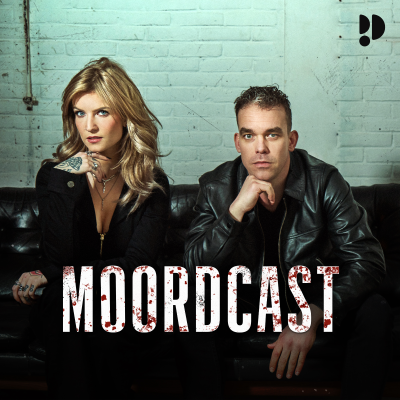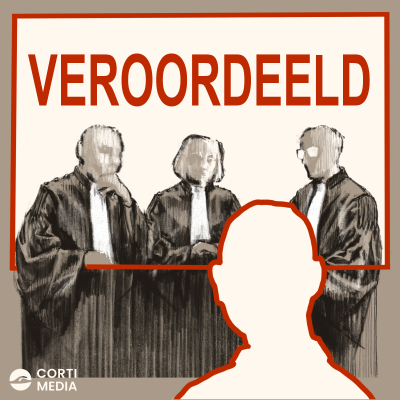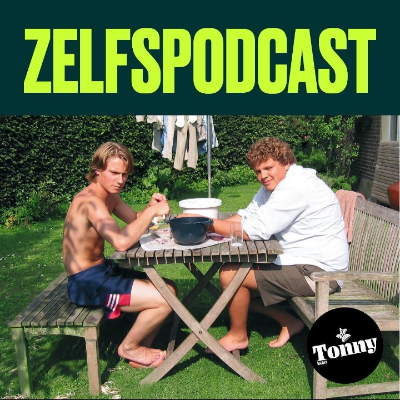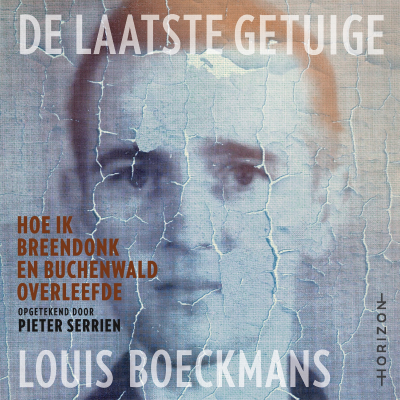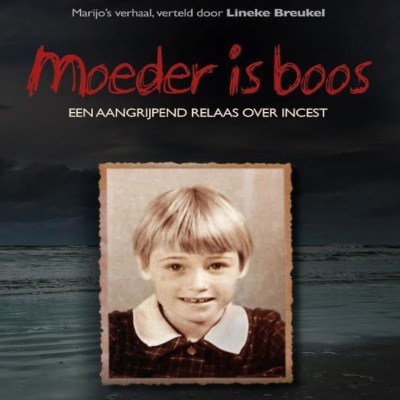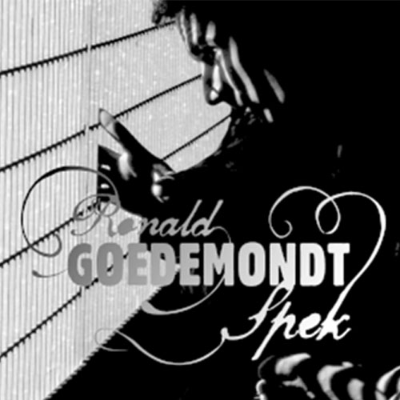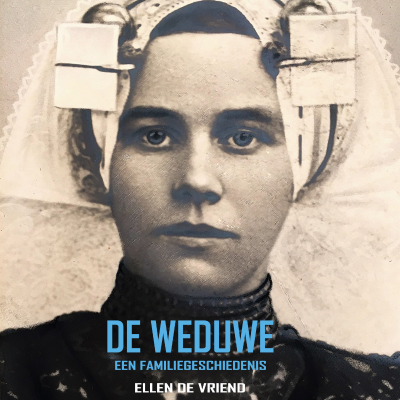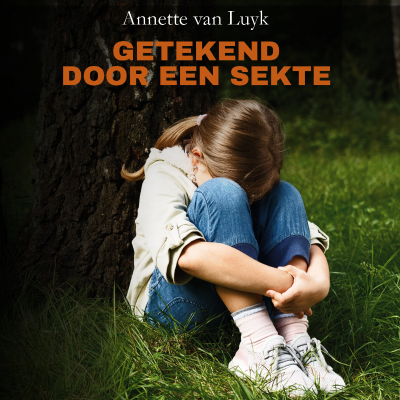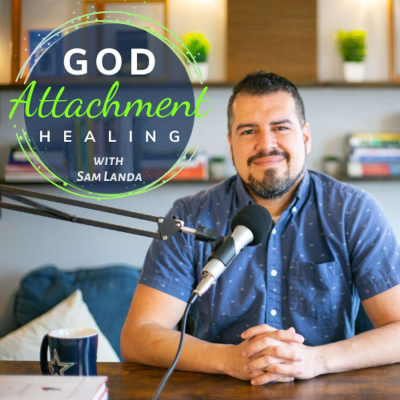
God Attachment Healing
Podcast door Sam
Tijdelijke aanbieding
3 maanden voor € 1
Daarna € 9,99 / maandElk moment opzegbaar.

Meer dan 1 miljoen luisteraars
Je zult van Podimo houden en je bent niet de enige
Rated 4.7 in the App Store
Over God Attachment Healing
Hi everyone! Welcome to the God Attachment Healing Podcast. I'm your host, Sam Landa. This podcast is dedicated to Christians who want to understand why they relate to God in the way they do. I explore how our early childhood relationship with our parents--specifically with how they met or did not meet our needs--influences how we relate to ourselves, the church, and to God. Because much of the pains and struggles of life are intertwined in these three areas, I discuss with my guests how we can find healing from the pain, confusion, doubt, and anger experienced in these relationships. If you're interested in learning more about your attachment style and how to heal from the pain you’ve experienced in the relationships mentioned above, then this podcast is for you. Welcome to the show! I'm happy you're here!
Alle afleveringen
43 afleveringenSend Me Questions on Attachment [https://www.buzzsprout.com/twilio/text_messages/350183/open_sms] What happens when grief arrives unexpectedly, shattering the life you carefully built? Dr. Jerry Woodbridge knows this terrain intimately. After losing her husband to cancer just one day after his diagnosis, she found herself navigating not only her own grief but also guiding her children through theirs. In this profound conversation, Dr. Woodbridge dispels common misconceptions about the grieving process. Forget the neat, orderly stages you've heard about—grief is more like "having a thousand hornets around your head" or bouncing on a trampoline while attempting to climb stairs. You make progress, fall back, bounce up again, and repeat in an unpredictable cycle that doesn't follow a timetable. The discussion delves into how grief fundamentally challenges our identity. For Dr. Woodbridge, becoming a widow at 42 wasn't part of her plan. "I made a choice to become a wife," she explains, "I did not say yes to becoming a widow." This identity crisis led to honest, sometimes angry conversations with God that ultimately strengthened her faith through Scripture passages specifically addressing God's care for widows. Perhaps most eye-opening is Dr. Woodbridge's insight into children's grief. Adults often try to shield children from pain or expect them to bounce back quickly, not realizing this approach can lead to unresolved grief manifesting later as identity issues, risky behaviors, and spiritual struggles. Her experience inspired her to write children's books about grief, filling a crucial gap in literature for middle-grade readers who need narratives validating their experiences. A beautiful metaphor emerges: both sorrow and joy can coexist like liquids in a coffee cup, with love serving as the bridge between them. We grieve because we love, and eventually, that same love allows us to experience joy again—not as a replacement for our loss, but alongside it. Whether you're currently walking through grief or supporting someone who is, this episode offers both comfort and practical wisdom. As Dr. Woodbridge reminds us, "You have to heal before you reveal," and sometimes the path to the high places of joy necessarily travels through the valleys of sorrow and suffering. Support the show [https://cash.app/$landaboys] FOLLOW ME ON INSTAGRAM: @godattachmenthealing [https://www.instagram.com/godattachmenthealing/] FOLLOW ME ON FACEBOOK: God Attachment Healing [https://www.facebook.com/samlanda23] ABOUT ME 👇 My mission is to help you understand your attachment style to learn how you can heal from the pain you’ve experienced in your relationship with God, the church and yourself. I look forward to walking alongside you as you draw closer to Christ!
Send Me Questions on Attachment [https://www.buzzsprout.com/twilio/text_messages/350183/open_sms] The complex relationship between faith and psychology takes center stage in this third installment of our shame series with theologian Jason Glenn. What happens when biblical understanding meets modern psychology? Can they coexist, or are they fundamentally at odds? This rich conversation explores the suspicion many Christians hold toward therapeutic approaches, while acknowledging the growing recognition that faith practices positively impact mental health. Jason shares his perspective on how the counseling field has often prioritized making people "feel at peace with who they are" over addressing deeper spiritual needs, yet he also challenges harmful Christian misconceptions that equate mental health struggles with spiritual failure. Through powerful personal stories, Jason reveals how his parents helped him navigate shame in psychologically and spiritually healthy ways. His mother's object lesson of burning written sins to illustrate God's forgiveness offered him a way to "disassociate my identity in Christ from my past sins" – creating resilience while maintaining appropriate conviction. Such formative experiences show how theology and psychology can work together rather than in opposition. The discussion ventures into provocative territory when examining how church culture has shifted from fire-and-brimstone approaches to sometimes overcorrecting with therapeutic methods that prioritize affirmation over accountability. As Jason notes, "If the good news doesn't speak to your victimhood, it's not good news" has become an unspoken assumption in many congregations, reflecting how psychological concepts have subtly reshaped theological understanding. For anyone struggling to reconcile their faith journey with psychological healing, this conversation offers a thoughtful middle path – one that honors both our complex psychological reality and timeless biblical truth. Whether you're a counselor, pastor, or simply someone navigating your own healing journey, you'll find wisdom for approaching shame in ways that lead to genuine transformation rather than either denial or identity-consuming guilt. Support the show [https://cash.app/$landaboys] FOLLOW ME ON INSTAGRAM: @godattachmenthealing [https://www.instagram.com/godattachmenthealing/] FOLLOW ME ON FACEBOOK: God Attachment Healing [https://www.facebook.com/samlanda23] ABOUT ME 👇 My mission is to help you understand your attachment style to learn how you can heal from the pain you’ve experienced in your relationship with God, the church and yourself. I look forward to walking alongside you as you draw closer to Christ!
Send Me Questions on Attachment [https://www.buzzsprout.com/twilio/text_messages/350183/open_sms] What's the difference between shame, guilt, and conviction in the Christian life? This question haunts many believers who struggle to navigate these complex emotions in their spiritual journey. Jason Glenn returns to unpack these crucial distinctions, revealing that the popular modern psychological framing of these terms often misaligns with biblical understanding. While contemporary culture frequently treats shame as an inherent negative to be eliminated, Scripture presents a more nuanced perspective where shame can serve redemptive purposes. Our conversation explores biblical guilt as primarily a judicial status rather than an emotion—it's about causality and responsibility before God. Conviction emerges as the Holy Spirit's illuminating work, exposing our hearts and guiding us toward repentance. Shame, meanwhile, addresses our failures in relationship to our identity and community expectations. We tackle difficult questions about debilitating shame versus healthy contrition. When Christians remain stuck in shame cycles, the problem often isn't shame itself but underlying pride, fear, or the strange comfort found in familiar self-condemnation. The gospel offers freedom from these patterns, though embracing this freedom requires significant faith and courage. The discussion turns to Jesus' own use of corrective shame in the story of Simon the Pharisee and the sinful woman. While affirming the contrite woman's response to her shame—which brought forgiveness—Jesus exposed Simon's pride through a form of redemptive shame that invited self-reflection. Whether you've struggled with persistent shame, confused conviction with guilt, or wondered how these emotions fit into your spiritual growth, this episode offers biblical clarity and practical wisdom for your journey toward wholeness in Christ. As Jason reminds us, "We should be more focused on the feeling of shame and less focused on shaming people." Support the show [https://cash.app/$landaboys] FOLLOW ME ON INSTAGRAM: @godattachmenthealing [https://www.instagram.com/godattachmenthealing/] FOLLOW ME ON FACEBOOK: God Attachment Healing [https://www.facebook.com/samlanda23] ABOUT ME 👇 My mission is to help you understand your attachment style to learn how you can heal from the pain you’ve experienced in your relationship with God, the church and yourself. I look forward to walking alongside you as you draw closer to Christ!
Send Me Questions on Attachment [https://www.buzzsprout.com/twilio/text_messages/350183/open_sms] What if shame isn't always toxic? In this thought-provoking conversation, theological scholar Jason Glenn challenges our modern assumptions about shame by exploring its biblical foundations and purpose in the Christian life. Beginning with Hebrew linguistic roots, Jason traces shame throughout Scripture, revealing how both Old and New Testaments present shame as a necessary component of spiritual formation. From Ezra's collective shame before God to Paul's direct confrontation of the Corinthian church, we see biblical examples where shame serves as a catalyst for repentance and growth rather than destruction. The discussion takes a fascinating turn as Jason demonstrates how our supposedly "shame-free" American culture hasn't actually abandoned shame—we've simply redirected it. While removing shame from behaviors Scripture identifies as harmful, we've intensified it in political and ideological spheres. This cultural blindspot leaves Christians confused about how to appropriately practice biblical correction and accountability. Perhaps most valuable is the distinction between destructive identity-based shaming ("you always ruin everything") and redemptive behavior-focused correction ("what you're doing is harmful"). When applied with compassion and hope, biblical shame becomes a powerful tool for transformation rather than condemnation. This episode is the first in a three-part series exploring shame from biblical, psychological, and theological perspectives. Whether you've experienced harmful shaming in church contexts or wonder how to practice loving accountability, this conversation offers a balanced, scripture-based framework for understanding this complex aspect of Christian life. Support the show [https://cash.app/$landaboys] FOLLOW ME ON INSTAGRAM: @godattachmenthealing [https://www.instagram.com/godattachmenthealing/] FOLLOW ME ON FACEBOOK: God Attachment Healing [https://www.facebook.com/samlanda23] ABOUT ME 👇 My mission is to help you understand your attachment style to learn how you can heal from the pain you’ve experienced in your relationship with God, the church and yourself. I look forward to walking alongside you as you draw closer to Christ!
Send Me Questions on Attachment [https://www.buzzsprout.com/twilio/text_messages/350183/open_sms] Dr. Lisa Stanton's journey from the depths of addiction to spiritual transformation offers a powerful testimony to God's ability to heal even our most broken parts. A social psychologist with expertise in behavior change, Dr. Stanton's professional knowledge couldn't save her from her own destructive patterns – she spent fifteen years cycling through anorexia, bulimia, and alcoholism while maintaining a façade of success. Growing up caught between her atheist mother and Christian father, Lisa drifted toward atheism in her teens and embraced biological determinism in graduate school, convinced life was meaningless. Despite outward achievements, she was drinking to blackout regularly, struggling with severe eating disorders, and eventually spiraling into isolation during COVID, drinking box wine alone in her apartment while questioning if life had any purpose at all. The turning point came in January 2021 when, after failed attempts at recovery through new age spirituality, she surrendered to God on her knees in a church. That moment became her sobriety date – one she's maintained for over four years. But what makes her story extraordinary isn't just getting sober; it's how her relationship with God has healed the underlying spiritual wounds that therapy alone couldn't touch. Dr. Stanton speaks candidly about the limitations of both purely religious and purely psychological approaches to mental health. While some churches stigmatize counseling, many therapists miss the spiritual dimensions of healing, particularly around forgiveness and personal responsibility. Her experience suggests that true transformation requires both spiritual surrender and honest self-examination – a daily practice of pausing to identify resentments, control issues, and selfish motivations before they manifest as anxiety, depression, or relapse triggers. Her book "52 Life-Changing Lessons I Learned in Recovery" explores these principles further, offering wisdom for anyone struggling with addiction, mental health challenges, or simply seeking a more authentic relationship with God. If you're battling your own demons or know someone who is, this episode provides both practical insights and profound hope that healing is possible at any depth of darkness. Support the show [https://cash.app/$landaboys] FOLLOW ME ON INSTAGRAM: @godattachmenthealing [https://www.instagram.com/godattachmenthealing/] FOLLOW ME ON FACEBOOK: God Attachment Healing [https://www.facebook.com/samlanda23] ABOUT ME 👇 My mission is to help you understand your attachment style to learn how you can heal from the pain you’ve experienced in your relationship with God, the church and yourself. I look forward to walking alongside you as you draw closer to Christ!

Rated 4.7 in the App Store
Tijdelijke aanbieding
3 maanden voor € 1
Daarna € 9,99 / maandElk moment opzegbaar.
Exclusieve podcasts
Advertentievrij
Gratis podcasts
Luisterboeken
20 uur / maand
